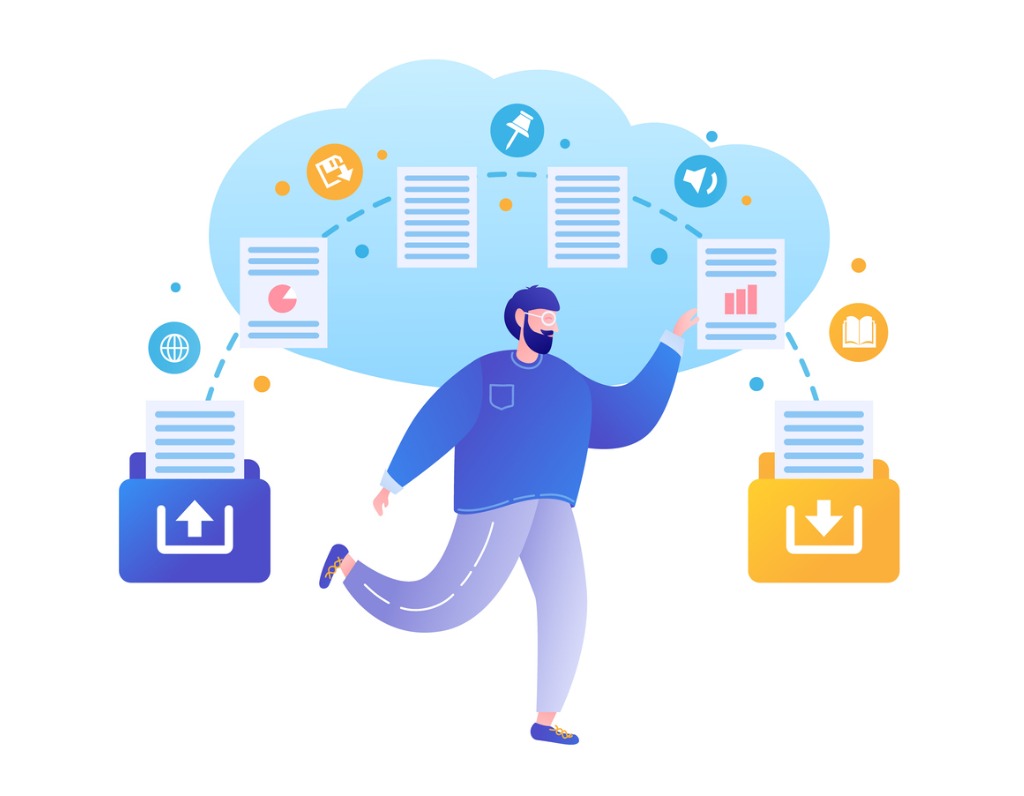![[Ultimate Guide] How to Set Up a Call Center in 2022?](https://cdn.c-zentrix.com/blog-images/the-checklist-for-your-call-center-setup.jpeg)
Call Center, Omnichannel
[Ultimate Guide] How to Set Up a Call Center in 2022?

The global wave of coronavirus has altered the working structure of many industries. The one sector that drastically had to shift to cloud solutions was the customer support department. Major companies reported a drastic surge in their cloud solutions revenue due to accelerated demand. Cloud-based platforms ensure business continuity with no cost to infrastructure. There are various cloud telephony service providers out in the market, but how do you know which one is best suited for your business?
There are a certain factors you need to consider before choosing a cloud telephony service for your enterprise. We have put together a guide to make your buying process easier.
Contents
1. Expectations From Cloud Telephony
2. Dependency on Cloud Telephony Service
3. Trial Availability for the Cloud Telephony Service
4. Cloud Telephony Compliance with Data Migration
5. Safety & Security of Cloud Telephony Service
6. Pricing of Cloud Telephony Service
7. Conclusion
The very first step before purchasing is to determine what you require. Make a list of things you need to meet your goals and check them off to analyze different options.
Some important things to check off are:
-Is call recording available as default?
-Does it provide power dialers for outbound calling?
-Does it have features like Call Monitoring or Call barge-in, built-in?
-Can you integrate your CRM with it?
-Can it scale to Omnichannel with your future needs?
-What are the reports that are available by default?
-What is the storage and archival policy?
-What is the cost, and are there any hidden charges for expansions?
-Is it API friendly?
-What aspects can be customized?
-Does it have hybrid cloud opt-ins alongside public and private cloud options?
Keep adding to this list based on your requirements and identify your goals as well. This will also add insights to your team to utilize the platform chosen to its full potential.
When your operation serves so many people at once, you have to make sure that the platform is dependable and battle-tested.
To find the accuracy of the uptime of the solutions in the market, one can look into their testimonials and customer stories.
Uptime is very important for business continuity. While cloud software runs non-stop but there can be glitches and that should be part of the Service Level Agreement (SLA). Unlike other SaaS products, cloud telephony service has more moving components – telecom / VoIP provider, network both at the server end and end-user, softphone/hardphone which can create disruption or downtime. So, it is very important to clarify with your cloud telephony service provider on these aspects and the limitations.
According to HashiCorp, 90% of large enterprises have adopted a multi-cloud infrastructure
After working in the customer support industry for years, I have realized that it is better to trial products before buying anything based on literature.
A trial for 7 to 15 days can provide essential insight into how the platform fits your existing business plan. It will also reveal how well your agents can use it after onboarding.
During the trial, try to make the most of the platform. Ask as many questions as needed and spend as much time as you can on the product. Most companies will offer a demo as well in-order to explain their exclusive features and capabilities.
If you are a small business, look for more scalable options to start with lesser seats and pay as you grow.
Cloud telephony services are meant to be more flexible than their on-premise counterparts. It should have a simple onboarding process so that you can kickstart your operations immediately.
Your chosen solution should be able to integrate with all other communication channels which can be the non-voice touchpoints, or else it might disrupt your data flow. At C-Zentrix, the Omnichannel solution integrates its cloud telephony service with all other communication channels and provides a unified communication for your business.
It should also be compliant with your existing CRM and other popular CRMs in the market like Salesforce, Oracle, Freshdesk, Microsoft Dynamics, etc. At C-Zentrix we not only integrate with 3rd party CRM, we also provide our in-house Helpdesk CRM fully integrated with cloud telephony service.

Clarify these needs when you are on your trial and do your own research as well. This will only improve your choice of product.
Customer data is very sensitive information that needs to be secured from a potential data breach. It is a legal responsibility to ensure that the chosen cloud telephony platform has the optimum data security level.
Here are few things that you should check out:
Pricing is the last detail to look into before purchasing the best-suited cloud telephony solution for your team. Chances are the prices won't be displayed on the website of the concerned product. Thus, contact their team and enquire.
There is usually a steady rental plan and added calling rates. However, some companies offer scalable programs where you pay for what you need and increase as you grow. Obviously, for long term contracts you can avail discount for the cloud telephony service that you opt for. Choose as per your business requirements.
Cloud-based contact centres are rapidly adapted by business. It's cost-effective to employ such solutions and its work from anywhere capability makes you run your contact center almost virtually. Before any major investment, it is always better to do your due research and ask the right questions - for which I have put this guide together.
If your business is looking for an efficient cloud telephony service , you can check out CZ-Cloud.